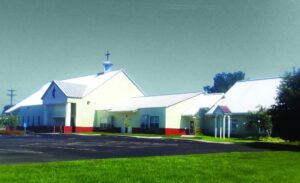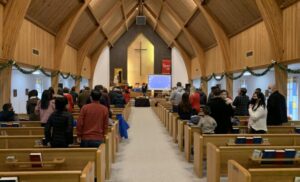When it comes to establishing or expanding a place of worship, a church loan can be a significant blessing. However, like all financial agreements, there are specific requirements that need to be met. In the US, church loans are a niche category, and understanding the prerequisites can help streamline the process. This article delves into the specifics of church loan requirements to provide you with comprehensive knowledge on the subject. You may also read A Guide to Renew F1 Visa Before Expiration
Understanding a Church Loan
A church loan is a specialized form of financing meant to assist religious institutions in purchasing property, renovating existing structures, or covering other church-related expenses. Because churches are unique entities, these loans differ significantly from traditional loans offered to businesses or individuals.

Why Do Churches Need Specialized Loans?
- Tax-exempt status: Unlike typical businesses, churches in the US have tax-exempt status, meaning they don’t pay income tax. This affects how lenders assess their financial health and stability.
- Unique Revenue Streams: Churches rely mainly on donations and offerings from members, which can be less predictable than conventional business income.
- Mission-focused: Churches are not primarily profit-driven, making their financial motives different from traditional businesses.
Core Church Loan Requirements
There are general requirements that most lenders look for when considering a church loan application:
Credit History of the Church
Lenders will review the church’s credit history to assess how reliably it has managed past financial obligations. A good credit score can make the loan application process smoother and could result in better loan terms.
Proof of Stable Revenue
Given that churches primarily rely on donations, they must demonstrate a consistent inflow of funds over a specific period. This shows the lender that the church can manage the loan repayments.
Down Payment
Just like a traditional mortgage, many lenders expect churches to provide a down payment. This varies among lenders, but it typically ranges from 10% to 30% of the loan amount.
Property Appraisal
If the loan is for purchasing or renovating property, a property appraisal will usually be required. This gives the lender an understanding of the property’s value, which acts as collateral for the loan.

Additional Considerations for a Church Loan
Membership Numbers and Growth
Some lenders might want to know about the church’s membership numbers and growth trends. A growing congregation might indicate increased future revenue, which can be favorable for loan approval.
Church’s Operating History
A longer operating history can often work in a church’s favor. Lenders might consider churches that have been operating for many years as more stable than newly established ones.
Detailed Financial Records
Maintaining detailed and transparent financial records is crucial. Lenders might request balance sheets, income statements, and other financial documents to get a clearer picture of the church’s financial health.
Working with a Specialized Lender
It’s often beneficial for churches to work with lenders who specialize in church loans. These lenders understand the unique challenges and benefits associated with church financing, making the process smoother.
Preparing for the Application
Before applying for a church loan, it’s essential to:
- Organize all required documents: This speeds up the process and demonstrates professionalism.
- Consult financial advisors: They can provide guidance on the best loan options for the church’s specific needs.
- Engage with the congregation: Informing the members about the loan intentions and garnering their support can be beneficial, especially when it comes to boosting revenue for repayments.
Conclusion
Obtaining a church loan in the US requires careful planning and preparation. By understanding the essential requirements and taking proactive steps, churches can navigate the process more efficiently. With the right financial strategy in place, a church loan can significantly benefit the community it serves.


